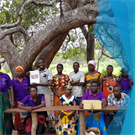Originally published in ITWeb Africa
Prior to his appointment, Mr. Hanan was the company’s Key Global Accounts Manager. He has had a successful career focused on financial services specific to affordable shelter in developing contexts. Within this sector, he helped establish operations, Small Businesses, and partnerships across roughly 35 markets in Europe, Central Asia, the Middle East and Africa. Mr. Hanan has over 11 years of experience with FSPs, client-focused product design, market analysis, investor/client relations, and strategic organizational development.
For many Financial Services Providers (FSPs) the value chain has been radically affected. The pandemic has forced most decision makers to rethink their ongoing strategies, to refocus on the market segments that make the most sense for them and then to reposition themselves for scaled growth once again. Digital delivery and digital experience are central to this repositioning process more than ever before, as FSPs want to hold the confidence of their clients and deliver their products, but in a “no contact” world.
What we notice is a sizable increase in demand for digital solutions, which are seen as one of the most efficient response measures in the COVID-shaped reality. FSPs are looking for two main outcomes: 1) retain their current client base and give those clients confidence in an uncertain time by allowing them the ability to access products and services and continuously transact in their personal financial spheres and 2) continue to onboard new clients through digital means, further reducing the need for branch operations.
Keeping digital channels in silos will slow down the business opportunities for the FSPs, especially in these times. The trends are showing that solutions such as Mobile wallet or mobile money account with digital self-registration and easy loan origination, internet banking portals, and agency banking to drive access points are becoming increasingly relevant.
When all channels are tied together in an omni-channel experience for the customer, then loyalty is increased tremendously. Innovation is also a lot easier to attain within the bank when it comes to new products and services, as visibility across all channels increases.
I think that the COVID-19 crisis will simply drive more transactions on mobile money and other digital channels, especially as Governments step in to support their constituents with disbursements that aim to reduce the economic impact of the pandemic. Banks and other FSPs will have a massive role to play in this process as well.
Over 500 million mobile-money users are expected in 2020. According to a GSMA report, Sub-Saharan Africa continues to be leading when it comes to mobile money services.
Prior to his appointment, Mr. Hanan was the company’s Key Global Accounts Manager. He has had a successful career focused on financial services specific to affordable shelter in developing contexts. Within this sector, he helped establish operations, Small Businesses, and partnerships across roughly 35 markets in Europe, Central Asia, the Middle East and Africa. Mr. Hanan has over 11 years of experience with FSPs, client-focused product design, market analysis, investor/client relations, and strategic organizational development.
Dear Mr. Hanan, thank you for accepting our invitation for an interview. Software Group has more than 60 customers in Africa. What challenges are financial institutions facing in this unprecedented, COVID-shaped environment? What are the efficient response measures that you are seeing?
For many Financial Services Providers (FSPs) the value chain has been radically affected. The pandemic has forced most decision makers to rethink their ongoing strategies, to refocus on the market segments that make the most sense for them and then to reposition themselves for scaled growth once again. Digital delivery and digital experience are central to this repositioning process more than ever before, as FSPs want to hold the confidence of their clients and deliver their products, but in a “no contact” world.
What we notice is a sizable increase in demand for digital solutions, which are seen as one of the most efficient response measures in the COVID-shaped reality. FSPs are looking for two main outcomes: 1) retain their current client base and give those clients confidence in an uncertain time by allowing them the ability to access products and services and continuously transact in their personal financial spheres and 2) continue to onboard new clients through digital means, further reducing the need for branch operations.
How can technology help them solve these pain points and stay on the competitive edge of the industry providing quick-to-market products to their customers? Are there any immediate technology-based remedy actions, which they can take?
More than ever a digital banking platform is a must as it ties together a comprehensive digital strategy and allows clients end-to-end financial services access and experience.Keeping digital channels in silos will slow down the business opportunities for the FSPs, especially in these times. The trends are showing that solutions such as Mobile wallet or mobile money account with digital self-registration and easy loan origination, internet banking portals, and agency banking to drive access points are becoming increasingly relevant.
When all channels are tied together in an omni-channel experience for the customer, then loyalty is increased tremendously. Innovation is also a lot easier to attain within the bank when it comes to new products and services, as visibility across all channels increases.
Africa has already widely adopted mobile money (with 46% of the global mobile money accounts). It’s been widely discussed whether the coronavirus actually kills cash. What are the perspectives for our market?
I think that the COVID-19 crisis will simply drive more transactions on mobile money and other digital channels, especially as Governments step in to support their constituents with disbursements that aim to reduce the economic impact of the pandemic. Banks and other FSPs will have a massive role to play in this process as well.
Over 500 million mobile-money users are expected in 2020. According to a GSMA report, Sub-Saharan Africa continues to be leading when it comes to mobile money services.






